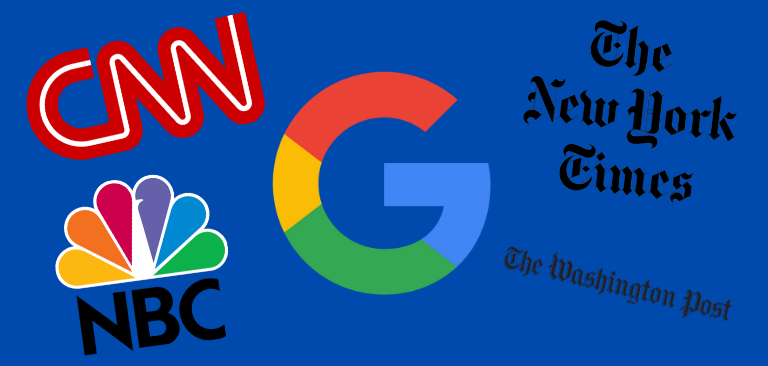Google is no doubt today a media giant in its own right – but in the larger world it inhabits, there are still pitched battles and even wars against traditional corporate publishers to be fought, won, and even perhaps, though increasingly unlikely, lost.
That’s especially true of the current status quo in Europe, where Germany’s Axel Springer, for example, has for years now tried to challenge Google as the new digital overlord in what it considers to be its own playground, and most importantly, its own bottom line.
Things like “link tax” – now institutionalized as policy by Germany-dominated EU – and previous attempts to pull out “snippets” of their articles from Google search – all eventually lead to the same source of discontent.
But now, when Google seems to be offering an olive branch to news publishers by finally sharing some revenue with them – its long-time “enemies” aren’t on the list – in Europe, at least.
Instead, Germany’s Spiegel, Frankfurter Allgemeine Zeitung, Zeit and Rheinische Post are among those who have signed up for what seems like Google’s highly curated licensing program.
Publishers will be paid for “high-quality” content while in return, Google News and Discover users will be able to access paywalled articles on their websites.
Google News VP Brad Bender is quoted as saying that participating entities will get a chance to make money off of their content featured on these Google platforms “through an enhanced storytelling experience.”
It’s never a good idea to mix “news” and “storytelling” in the same sentence – nevertheless, Google seems comfortable enough doing it.
Beyond Europe, the giant is aiming to recruit publishers in other traditionally problematic to its dominance regions, like Australia and Brazil and expand to other countries soon.
“Today, we are announcing a licensing program to pay publishers for high-quality content for a new news experience launching later this year,” says Google vice president for news Brad Bender.
“This program will help participating publishers monetize their content through an enhanced storytelling experience that lets people go deeper into more complex stories, stay informed and be exposed to a world of different issues and interests.”
If this Google project goes anywhere – and the giant is not afraid to kill its products, to never address them again – it eventually aims at expanding its tentacles to even more publishers.
Google and mainstream media outlets are already working together to demonetize and deplatform independent news outlets which could complicate this whole arrangement where it comes to antitrust.
Also, this arrangement arrives at a time were Google’s dominance should be subject to increasing scrutiny by the media and yet this could create a conflict of interest.
We really need to wait and see if it’s anything more than just another cat-and-mouse experiment and diversion launched by Google in a bid to placate its fidgeting traditional publisher competitors.













